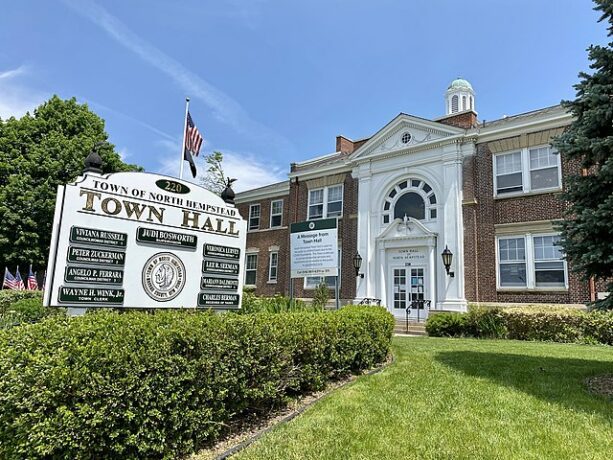The poliovirus has been found throughout the Town of North Hempstead’s wastewater, officials announced on Friday.
Nassau County is the latest area in the state to have the virus discovered in sewage samples. Officials say it was detected in Manhasset, Port Washington, Glenwood Landing and Roslyn as part of normal wastewater monitoring.
The Nassau County sample was genetically related to a case of paralytic polio previously detected in Rockland County, showing that the disease is spreading.
Because of this, Gov. Kathy Hochul declared a state disaster emergency on Friday morning. The executive order increases the resources to protect New Yorkers against the paralytic disease.
Nassau County has a polio immunization rate of 79.15% as of Aug. 1 compared to the New York average of 78.96%. The state is now aiming for “well over 90%.”
At a press conference, Nassau County Executive Bruce Blakeman said there is no health crisis. But, he said the county is not brushing off the situation.
“There is no reported, active case of polio in Nassau County,” he said. “We need to be vigilant. We’re being very, very cautious and monitoring the situation.”
He said the state Department of Health and the Centers for Disease Control and Prevention are working with the county. Together, they are responding to the recent revelations by raising vaccine awareness and connecting with local doctors.
Interim Nassau County Health Commissioner Andrew Knecht said this is a crucial time, with one polio case already emerging in Rockland County.
“Parents of children need to ask their health care providers about what the status of their polio vaccine for their kids is,” he said.
Polio affects the nervous system and causes muscle weakness. In severe cases, it can cause paralysis or death. It is also extremely contagious. Even if a person is not sick or has symptoms, they can transfer the virus.
While there is no cure, immunizations can help prevent the disease. Since 2000, the United States has only administered the inactivated poliovirus vaccine. When given all the prescribed doses, it protects 99 out of 100 people against severe sickness, according to the CDC.
Dr. Mary Bassett, the state’s health commissioner, said in a statement that immunization is vital. She said the vaccine is both safe and effective.
“If you or your child are unvaccinated or not up to date with vaccinations, the risk of paralytic disease is real,” she said. “I urge New Yorkers to not accept any risk at all.”
She advised those unvaccinated to get immunized as soon as possible. This includes infants under two months old, those who are pregnant and anyone who has not finished their previous polio vaccination series.
Children in New York must receive the polio vaccine to attend school. Normally, one receives it through a series of four shots.
Additionally, handwashing with soap is also important. Many alcohol-based sanitizers do not work on some germs, such as polio.

